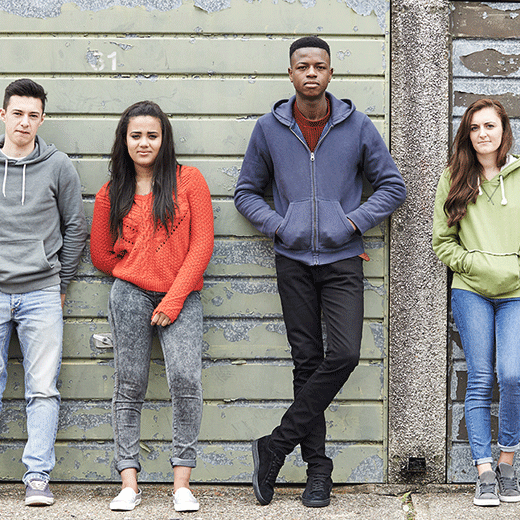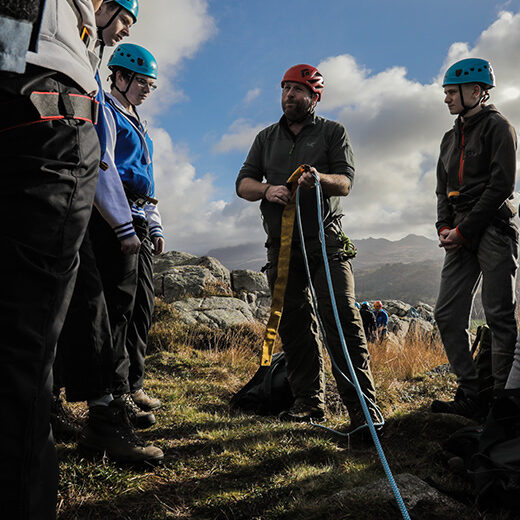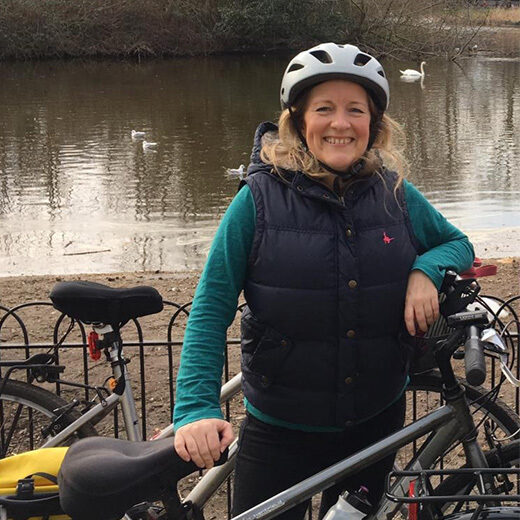Building confidence and capability in young people
Our recent conversations with teachers and employers have confirmed that at the core of how all young people think, feel, behave and how they experience and embrace life, is their confidence.
In this blog I look at what confidence and capability means for young people at different stages of their lives, from primary school to the world of work - and how Outward Bound supports them.
Why confidence is so important
Confidence is central to leading happy, fulfilled lives. For young people, it's recognising what they’re capable of and their openness to try new things. Self-esteem and feeling positive about yourself is a big part of being confident. As young people develop and have new experiences in life, their confidence fluctuates. Breakdowns in relationships and negative experiences at school/work are a couple of ways in which a young person’s confidence and self-esteem can be negatively impacted.
Let's begin at Primary school...
Primary school pupils need help to develop independence and a willingness to have a go.
In conversations I have had with teachers post-pandemic, they tell me that primary aged children are reluctant to leave their parents/ guardians and lack the basic independence to do things for themselves. Teachers see a resistance to trying something new and insecurities when interacting with their peers - behaviours that have grown since lockdown.
At Outward Bound we work with children from nine years old. It's often their first trip away with peers. Living and working with classmates, they form deeper, trusting relationships. They learn to problem solve and make decisions, all while completing physical and emotional challenges that allow them to see their abilities in a new light. These early experiences, provide a firm foundation which accelerates the development of their confidence and self-esteem. Back at school they're more motivated, more independent and feel part of a cohesive group who are aware of and willing to support each other.
Being away from the parents and actually having to do things for themselves - they've got to tidy their own room and get themselves organised. You live in hope that they come back and think 'well, actually I could do that on the residential so therefore I can make my own bed at home and have that independence'.
Joanne Ramsbottom, Headteacher, Daisyfield Primary School, BlackburnTransitioning to secondary school...
At this stage in life young people need to develop resilience and build their aspirations.
As young people mature and move onto secondary school, the way in which they hold themselves, react to others and deal with change is reflective of their self-confidence. At this stage in their lives, they become more aware of the opinions of others, are more likely to compare themselves and experience feelings of judgement and self-doubt. As adolescence is one of the most impressionable, emotional, and changeable times of their lives, being confident, feeling capable and having good self-esteem is central to a young person overcoming negativity and difficulties.
Outward Bound experiences challenge secondary school-aged students to face their fears, be vulnerable, honest and accepting of others. This helps confirm to individuals the value of their own and others’ unique skills and capabilities. It also builds their resilience and widens their aspirations and sense of what’s possible.
“Issa has always been an academically able student, but lacked resilience and confidence in his own ability, often not contributing before he was certain that he had the correct answer rather than risking a mistake. Since Outward Bound, the improvement is clearly visible. Issa did not find all of the activities easy, particularly the expedition, but having forced himself to complete it, he has a new-found confidence in his own abilities, no longer giving up at the first sign of a struggle.”
- Secondary School Assistant Headteacher
Entering the world of work...
Stepping in to employment requires young people to develop a sense of team and belonging.
Entering the workplace from the security of school, college or university is another test of a young person’s confidence and self-esteem. Lacking confidence can stop them going for applications and interviews and once in the workplace can present challenges, such as building supportive working relationships and a reluctance to take on responsibility, contributing to poor productivity and poor employee retention for the business as a whole. Self-confident, self-assured individuals are more assertive, motivated and willing to learn from mistakes, contributing to a more aspirational and productive workforce.
Our work with apprentices and graduates is designed to strengthen individuals’ self-identity, motivating and further challenging young talent to rely on and support others to create a sense of belonging. Exploring the meaning of teamwork to a deeper level, colleagues are encouraged to share constructive feedback which develops awareness of individuals’ and colleagues’ strengths and develops respect, understanding and ultimately healthier, more productive working environments.
It was quite interesting to watch how their behaviour changed throughout the week. I know it’s only a week but what a massive change in the way they were helping each other and getting on and joking with each other, at the start of the week they wouldn’t have said boo to a goose.
Anthony, Babcock InternationalNobody is born confident
Developing confidence is central to an individual’s well-being whatever their age or stage of life. Nobody is born confident; it is something we develop as we progress through life. It is shaped through our interactions with others and our different experiences. Developing confidence in individuals from an early age bolsters their sense of security. Happiness, feeling safe and having pride in their capabilities is essential if young people are to not only overcome tough times but see them as positive learning experiences from which they can continue to flourish.
To read more about how an Outward Bound course develops confidence and capability in young people read our free report on wellbeing: feeling good and functioning well.
Further Reading

A New Report: Young People's Wellbeing
20 January 22
Wellbeing: the rising crisis in young people and what we can do about it.

How Outward Bound instructor’s help buil...
21 February 22
Wellbeing: our instructor’s role in building relationships

Why invest in wellbeing?
21 March 22
Emma Ferris, our Head of Evaluation looks at why we should invest in wellbeing
Feeling good and functioning well
Download and read our impact report which explains how learning and adventure in the wild can improve young people's personal and social wellbeing.
Join our webinar: Thursday 28 April
This webinar is for you if interested in supporting young people and their wellbeing - we're hosting two webinars specifically looking at education and early careers.